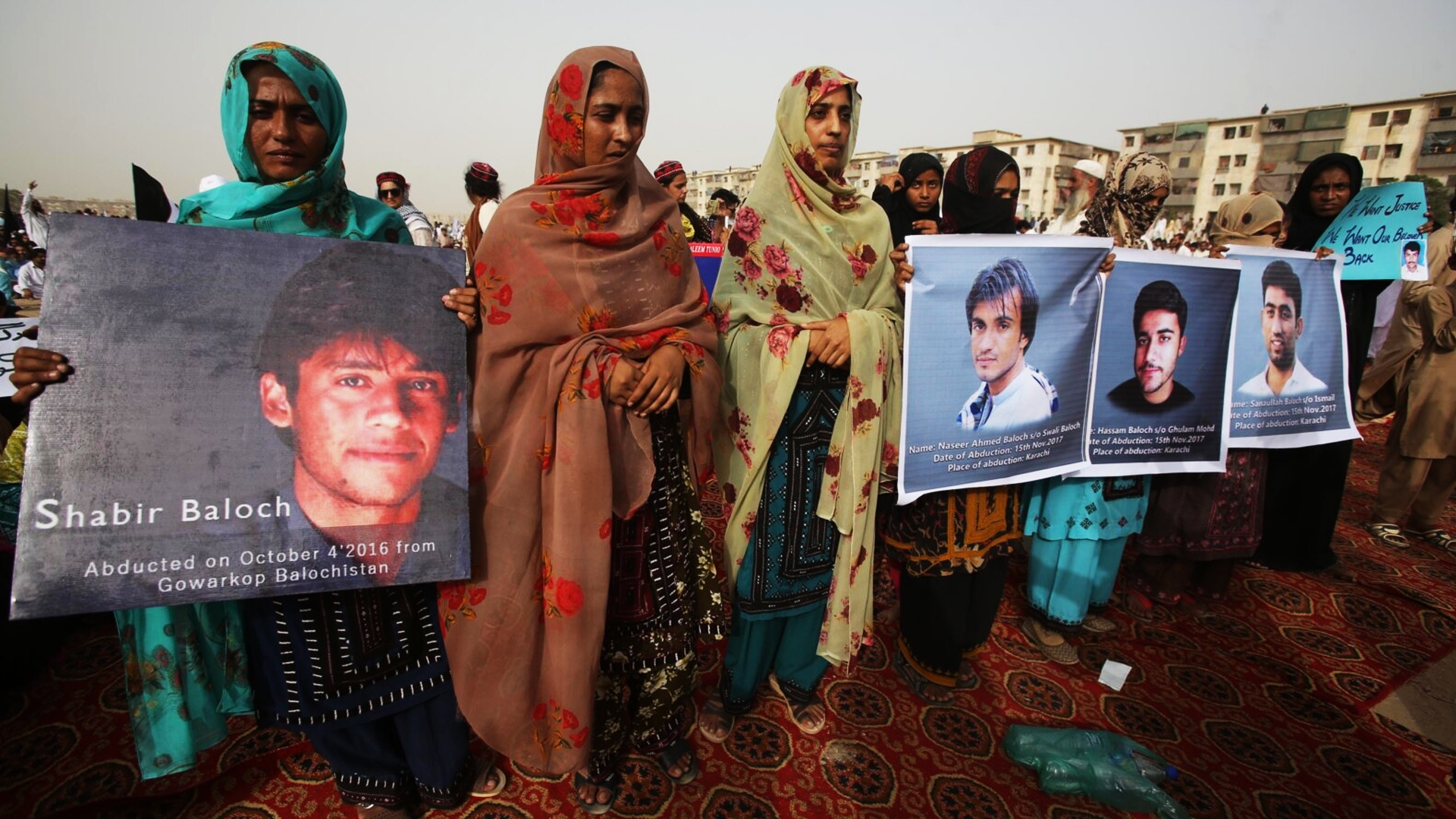Who is Hafeez Baloch?
Hafeez Baloch is a student who was pursuing his M. Phil in Physics at QAU, prior to which he was pursuing a Master’s in the physics department at the University of Balochistan, where he had secured second place. Additionally, he passed the examination required to become a Physics lecturer in Balochistan.
On 8th February, whilst he was visiting his village Khuzdar, Balochistan, he was abducted by masked men who forcibly entered the tuition academy that he was teaching in and took him away in front of his students.
To date there is still no information about the whereabouts of Hafeez Baloch.
Following his disappearance, several students protested outside the National Press Club by participating in a hunger strike and refusing to attend classes at QAU.
However, during these demonstrations, the Islamabad police harassed the students, physically assaulted them, and even confiscated their mobile phones.
The authorities claim that these demonstrators attempted to set up a tent outside the National Press Club but were told to refrain from doing so since the capital was on a security alert due to the presence of the Australian cricket team in the city.
Additionally, the police claim that the local assistant commissioner and other police officers negotiated with them, in spite of which they attempted to set up their tent again. As a result, the police sought to seize their tents, leading to a physical confrontation between the police and protestors.
The police ultimately backed down after interference from higher authorities and also returned the materials that they had confiscated from the demonstrators.
The police also filed an FIR against the students, Hafeez Baloch’s lawyer Imaan Hafiz, and journalist Asad Toor. Nevertheless, these FIRs were withdrawn after the Islamabad High Court intervened and a complaint was filed with the Commission of Enquiry on Enforced Disappearances.
The bigger picture
Even though Hafeez Baloch’s case has received significant attention from students and the media, it is important to note that this is merely one of the many disappearances of Baloch students that has taken place in the last few years.
Several Baloch students have gone missing, without any criminal cases registered on their name, without being accused of the grounds of their arrest, without facing a trial at court.
On social media, some defame them as insurgents who have joined militant organizations in Balochistan, but others call them victims of profiling who have been abducted by Pakistani security agencies.
In another instance, the Counter Terrorism Department (CTD) picked up Bebgar Imdad, a Baloch student studying at National University of Modern Languages, on grounds of allegedly having links to a bomb blast at Karachi University on 26th April.
Following this, activists from the Baloch Council staged a sit-in outside the office of the Vice-Counsellor of Punjab University, which is where Imdad was arrested whilst he was visiting a relative.
A senior official informed the Pakistani newspaper Dawn that Imdad was arrested after his phone number was found to be associated with the Twitter account of the husband of the suicide bomber, Shari Baloch. Although, the investigating agencies did not find any connection between Imdad and the family of the suicide bomber.
Imdad was released on 10th May, following which the Baloch Council ended their protest.
What is being done to resolve this crisis?
In June of last year, a bill was introduced in the National Assembly to criminalize enforced disappearances, the Criminal Acts (Amendment) Act 2021.
This would include a new section- 52-b on enforced disappearances. This section defines what an enforced disappearance is, the three elements that constitute it- namely, an unlawful deprivation of liberty, an act that is carried out by the state or with the support of the state, refusal to acknowledge the disappearance or concealment of the whereabouts of the victim.
Moreover, the punishment for this crime was decided to be a period that extends up to ten years and also includes a fine.
This bill was passed in the National Assembly but it is yet to be approved by the Senate, where it reportedly went missing in February this year.
On 13th May, Chief justice Athar Minallah heard the case of the apparent harassment of Baloch students from QAU, and asked the Ministry of Human Rights as well as the Ministry of Interior to submit a report on this at the next hearing- on the 10th of June.
The Islamabad High Court also instructed the Ministry of Interior to conduct an inquiry to determine the whereabouts of one of the missing students, Feroz Baloch.
Imaan Mazari, the lawyer representing the Baloch students, informed the court that the students had met with the President of Pakistan twice, and he assured them that he would look into the growing number of disappearances. Yet, even after this, one student was abducted from Karachi and another from Lahore.
Highlighting her disappointment over the governments ‘lack of concern’, Imaan Mazari has also suggested that the Higher Education Commission send notices to all the universities in Pakistan, directing them to put an end to the harassment of Baloch students.




















